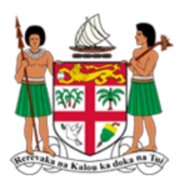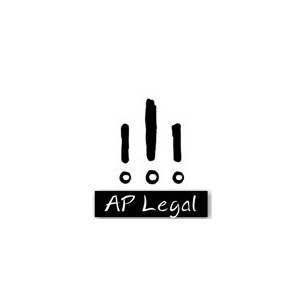Best International Trade Law Lawyers in Fiji
Share your needs with us, get contacted by law firms.
Free. Takes 2 min.
Or refine your search by selecting a city:
List of the best lawyers in Fiji
About International Trade Law in Fiji
International Trade Law in Fiji governs the rules and regulations associated with trade flows between Fiji and other countries. This area of law deals with the policies and laws that affect both the import and export of goods and services. Fiji, like many other countries, has specific legislative frameworks to manage its trade relations, aiming to foster trade while protecting the interests of local industries and consumers. Given its strategic location in the Pacific, Fiji acts as a trading hub, thus making International Trade Law a crucial aspect of its legal system.
Why You May Need a Lawyer
Engaging a lawyer skilled in International Trade Law can be critical for navigating the complexities associated with cross-border trade. Common situations that might necessitate legal assistance include:
- Understanding and compliance with export/import regulations.
- Resolving trade disputes with foreign entities.
- Dealing with anti-dumping and countervailing duty cases.
- Negotiating international trade agreements and contracts.
- Navigating customs procedures and tax implications.
- Protecting intellectual property rights in the context of international trade.
- Advice on trade tariff structures and non-tariff barriers.
- Assistance with regulatory licenses and permits for trading.
- Legal representation in litigation or arbitration proceedings related to trade.
- Guidance on compliance with international trade organizations, such as the WTO.
Local Laws Overview
Fiji's International Trade Law is encapsulated in several legislative frameworks and policies that manage the import and export activities. Key aspects include:
- Customs Act: Governs the importation and exportation of goods, including tariff classifications and valuation.
- Fiji Commerce Commission Act: Regulates fair trading practices and prohibits anti-competitive behavior.
- Biosecurity Act: Oversees the import and export of agriculture and livestock to protect local ecosystems.
- Foreign Investment Act: Provides the guidelines under which foreign entities can invest and trade in Fiji.
- Trade Standards and Quality Control Decree: Establishes the standards and quality measures for goods in the market.
- Export Promotion: Policies designed to encourage the exportation of Fijian goods and services.
Frequently Asked Questions
What is the process for importing goods into Fiji?
Importing goods into Fiji requires compliance with the Customs Act, including submission of import documents, paying applicable duties, and obtaining necessary permits for restricted goods.
How does Fiji handle international trade disputes?
Trade disputes can be resolved through negotiation, mediation, arbitration, or litigation, depending on the circumstances and involved parties. The legal system supports alternative dispute resolution as an efficient method.
Are there any restrictions on exporting goods from Fiji?
Yes, certain goods may be subject to export controls to protect biodiversity or for reasons related to national security. Specific licenses and permits may be required.
What are anti-dumping laws?
Anti-dumping laws are designed to prevent foreign companies from selling goods in Fiji at below-market value, which could harm local industries. Legal measures can be taken to impose duties on dumped goods.
How can I ensure compliance with trade agreements?
Compliance can be ensured by staying informed on current trade agreements Fiji is a part of and seeking legal advice to meet obligations and benefit from trade preferences.
What is the role of the World Trade Organization (WTO) in Fijian trade?
Fiji is a member of the WTO, which provides a framework for negotiating trade agreements and resolving disputes. Compliance with WTO rules is essential for Fijian international trade.
How can I protect my intellectual property in international trade?
Legal tools such as trademarks, patents, and copyrights can protect intellectual property. It is important to register IP both domestically and internationally.
What are non-tariff barriers?
Non-tariff barriers include quotas, import licenses, and standards that, while not taxes, can affect trade. Legal advice may be necessary to navigate these measures.
Are there investment incentives for foreign companies in Fiji?
Yes, the government provides incentives for foreign investors, such as tax breaks and free zone facilities to encourage economic growth through foreign investment.
What legal support does Fiji offer for contract negotiation in international trade?
Expert legal practitioners can help draft, review, and negotiate contracts to ensure compliance with local and international trade laws and protect your interests.
Additional Resources
Several resources can provide further assistance:
- The Fijian Ministry of Industry, Trade and Tourism offers comprehensive support and information.
- The Fiji Revenue and Customs Service provides guidelines and necessary documentation for imports and exports.
- The Pacific Islands Forum Secretariat can assist with regional trade guidance.
- Local law firms specializing in International Trade Law can offer specific legal advice and services.
- The World Trade Organization’s official resources on trade policies applicable to Fiji.
Next Steps
If you require legal assistance in International Trade Law, consider the following steps:
- Identify your specific legal needs related to trade.
- Consult with a qualified lawyer specializing in International Trade Law in Fiji.
- Gather relevant documents and information to present to your legal counsel.
- Seek recommendations and reviews of legal firms or practitioners.
- Contact the relevant governmental agencies for preliminary guidance.
- Consider joining trade associations or networks for support and advocacy in trade matters.
By following these steps, you can navigate the complexities of International Trade Law in Fiji effectively and protect your business interests.
Lawzana helps you find the best lawyers and law firms in Fiji through a curated and pre-screened list of qualified legal professionals. Our platform offers rankings and detailed profiles of attorneys and law firms, allowing you to compare based on practice areas, including International Trade Law, experience, and client feedback.
Each profile includes a description of the firm's areas of practice, client reviews, team members and partners, year of establishment, spoken languages, office locations, contact information, social media presence, and any published articles or resources. Most firms on our platform speak English and are experienced in both local and international legal matters.
Get a quote from top-rated law firms in Fiji — quickly, securely, and without unnecessary hassle.
Disclaimer:
The information provided on this page is for general informational purposes only and does not constitute legal advice. While we strive to ensure the accuracy and relevance of the content, legal information may change over time, and interpretations of the law can vary. You should always consult with a qualified legal professional for advice specific to your situation.
We disclaim all liability for actions taken or not taken based on the content of this page. If you believe any information is incorrect or outdated, please contact us, and we will review and update it where appropriate.
Browse international trade law law firms by city in Fiji
Refine your search by selecting a city.

















